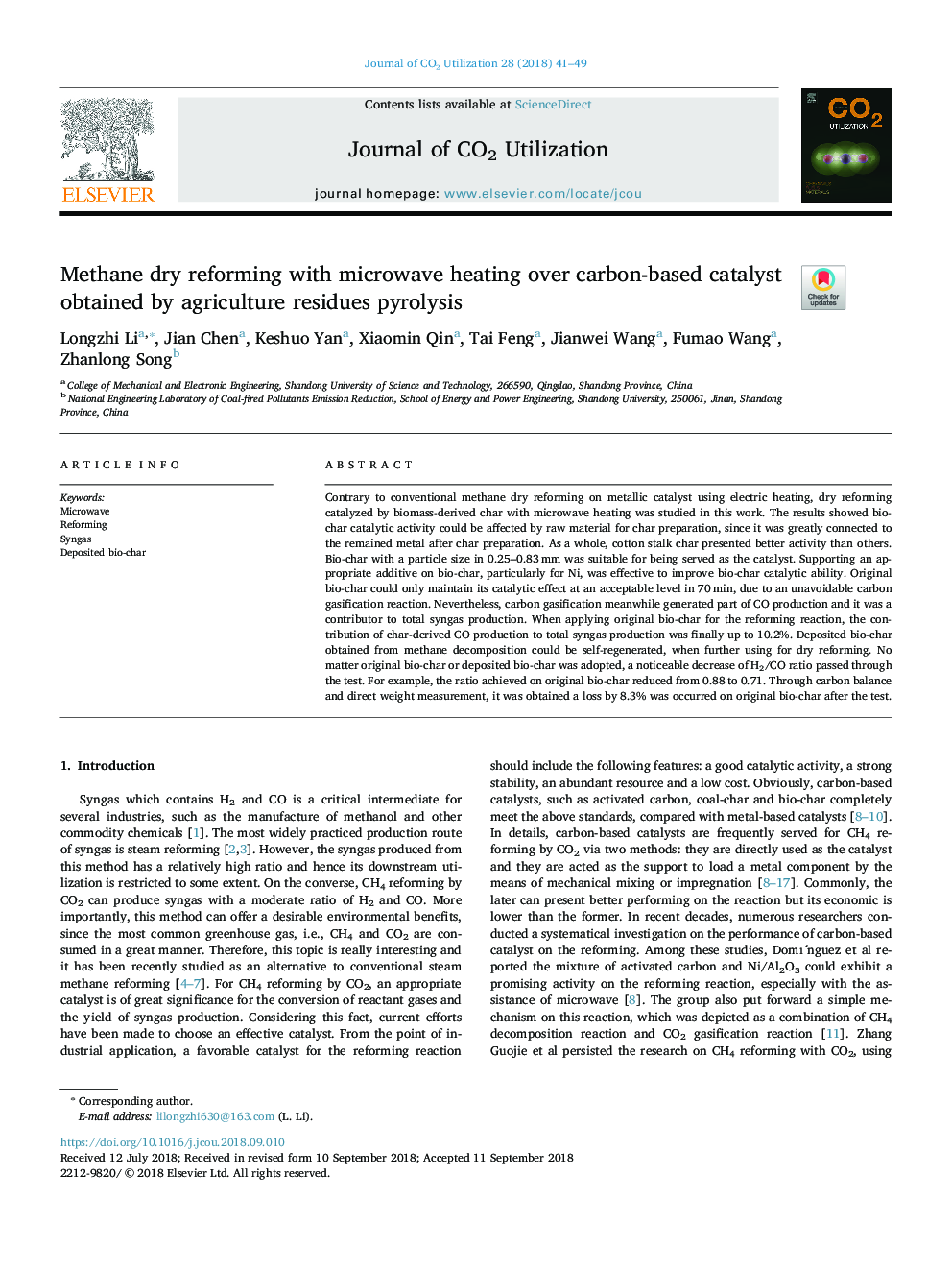| Article ID | Journal | Published Year | Pages | File Type |
|---|---|---|---|---|
| 10224921 | Journal of CO2 Utilization | 2018 | 9 Pages |
Abstract
Contrary to conventional methane dry reforming on metallic catalyst using electric heating, dry reforming catalyzed by biomass-derived char with microwave heating was studied in this work. The results showed bio-char catalytic activity could be affected by raw material for char preparation, since it was greatly connected to the remained metal after char preparation. As a whole, cotton stalk char presented better activity than others. Bio-char with a particle size in 0.25-0.83âmm was suitable for being served as the catalyst. Supporting an appropriate additive on bio-char, particularly for Ni, was effective to improve bio-char catalytic ability. Original bio-char could only maintain its catalytic effect at an acceptable level in 70âmin, due to an unavoidable carbon gasification reaction. Nevertheless, carbon gasification meanwhile generated part of CO production and it was a contributor to total syngas production. When applying original bio-char for the reforming reaction, the contribution of char-derived CO production to total syngas production was finally up to 10.2%. Deposited bio-char obtained from methane decomposition could be self-regenerated, when further using for dry reforming. No matter original bio-char or deposited bio-char was adopted, a noticeable decrease of H2/CO ratio passed through the test. For example, the ratio achieved on original bio-char reduced from 0.88 to 0.71. Through carbon balance and direct weight measurement, it was obtained a loss by 8.3% was occurred on original bio-char after the test.
Related Topics
Physical Sciences and Engineering
Chemical Engineering
Catalysis
Authors
Longzhi Li, Jian Chen, Keshuo Yan, Xiaomin Qin, Tai Feng, Jianwei Wang, Fumao Wang, Zhanlong Song,
